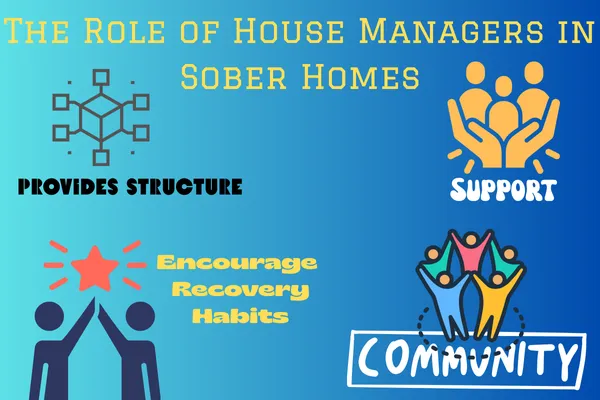
The Role of House Managers in Sober Homes
In the journey of recovery, sober living homes serve as crucial stepping stones between intensive treatment and independent living. At the heart of these supportive environments stands a pivotal figure: the house manager. Understanding the multifaceted role of house managers in recovery can illuminate why these dedicated professionals are essential to the success of addiction recovery programs.
What is a House Manager in Sober Living?
A house manager in a sober living facility is far more than a supervisor or administrator. They are mentors, advocates, and guardians of the recovery-focused community atmosphere that makes sober homes effective. These professionals bring together administrative skills, recovery knowledge, and genuine compassion to create an environment where residents can thrive in their sobriety journey.
The position requires individuals who understand the complexities of addiction and recovery, often drawing from their own lived experiences or extensive training in substance abuse recovery. This unique perspective allows them to connect authentically with residents while maintaining the structure necessary for a successful sober living environment.
Core Responsibilities of House Managers
Daily Operations and Safety
House managers oversee the day-to-day operations that keep sober homes running smoothly. This includes conducting regular safety checks, ensuring all residents comply with house rules, and maintaining a clean, welcoming environment. They coordinate maintenance issues, manage supplies, and ensure the physical space supports recovery goals.
Safety extends beyond physical security to emotional and psychological well-being. House managers are trained to recognize signs of relapse, mental health crises, or interpersonal conflicts that could threaten the stability of the recovery community.
Rule Enforcement and Accountability
One of the most challenging aspects of the role involves enforcing house rules while maintaining compassionate relationships with residents. Transitional housing programs rely on structure, and house managers must consistently apply policies regarding curfews, guest visits, drug testing, and community responsibilities.
This enforcement isn't punitive but educational, helping residents develop the self-discipline and accountability skills they'll need for long-term sobriety. House managers often work individually with residents to understand rule violations and develop strategies for improvement.
Crisis Intervention and Support
When emergencies arise, house managers serve as the first line of response. Whether dealing with a potential relapse, mental health crisis, or conflict between residents, they must act quickly and appropriately. This requires extensive training in crisis intervention techniques and strong relationships with local emergency services and treatment providers.
Their role extends to providing emotional support during difficult moments, helping residents navigate challenges without compromising their sobriety. This might involve late-night conversations, emergency transportation to treatment facilities, or coordinating with family members during crises.
Building and Maintaining Community
The success of sober living communities depends largely on the culture and atmosphere house managers help create. They organize community meetings, facilitate conflict resolution, and encourage participation in house activities that strengthen bonds between residents.
House managers understand that recovery thrives in environments of mutual support and shared purpose. They work to identify and address dynamics that might undermine community cohesion, while celebrating milestones and successes that reinforce positive behavioral changes.
Mentorship and Guidance
Beyond rule enforcement, house managers serve as mentors who help residents navigate the practical aspects of building a sober life. This includes assistance with job searches, educational goals, financial management, and relationship building. They often share resources, make referrals to community services, and provide practical advice drawn from their experience working with individuals in recovery.
The mentorship role requires house managers to balance support with encouragement of independence. They must help residents develop self-reliance while ensuring they don't become isolated or overwhelmed by life's challenges.
Collaboration with Treatment Professionals
Effective house managers maintain strong relationships with therapists, case managers, probation officers, and other professionals involved in residents' recovery journeys. They provide valuable insights into residents' daily functioning and community integration, information that can significantly impact treatment planning.
This collaboration ensures continuity of care and helps identify when residents might need additional support or different levels of care. House managers often attend treatment team meetings and provide regular updates on residents' progress and challenges.
The Impact on Recovery Success
Research consistently shows that individuals who live in well-managed sober living homes have significantly better long-term recovery outcomes. The presence of a skilled, dedicated house manager correlates with higher completion rates, longer sobriety periods, and better social functioning after leaving the program.
House managers create the stable, supportive environment that allows the therapeutic work done in treatment to take root and flourish. They provide the daily reinforcement of recovery principles and the immediate support needed when challenges arise.
Qualities of Effective House Managers
The most successful house managers combine professional skills with personal qualities that resonate with individuals in recovery. They typically possess strong communication skills, cultural sensitivity, and the ability to remain calm under pressure. Many have personal experience with recovery, though this isn't always required.
Effective house managers also demonstrate flexibility and creativity in problem-solving, understanding that each resident's path to recovery is unique. They balance firmness with compassion, maintaining boundaries while showing genuine care for residents' well-being and success.
Conclusion
House managers represent the human face of recovery housing, transforming what could be merely transitional accommodation into genuine communities of healing and growth. Their dedication, expertise, and daily presence make the difference between residents simply staying sober and truly learning to thrive in recovery.
The role continues to evolve as our understanding of addiction and recovery deepens, but the core mission remains constant: providing the structure, support, and guidance that individuals need to build sustainable, fulfilling lives in sobriety.
Ready to take the next step in your recovery journey? Trinity House provides professionally managed sober living environments where experienced house managers support your transition to independent, sober living. Our compassionate team understands the challenges of early recovery and is committed to helping you build the skills and confidence you need for long-term success. Contact Trinity House today to learn more about our supportive community and how our dedicated house managers can help you thrive in recovery.
